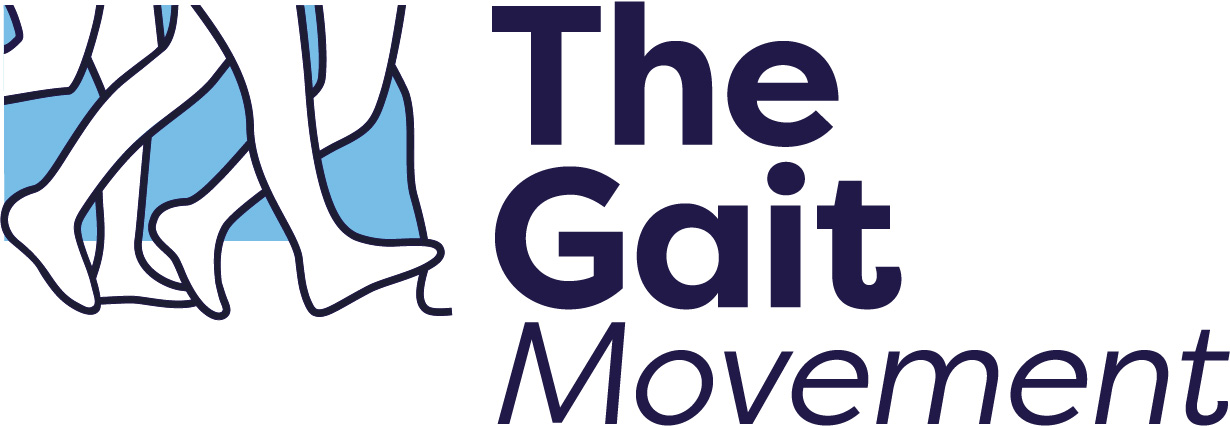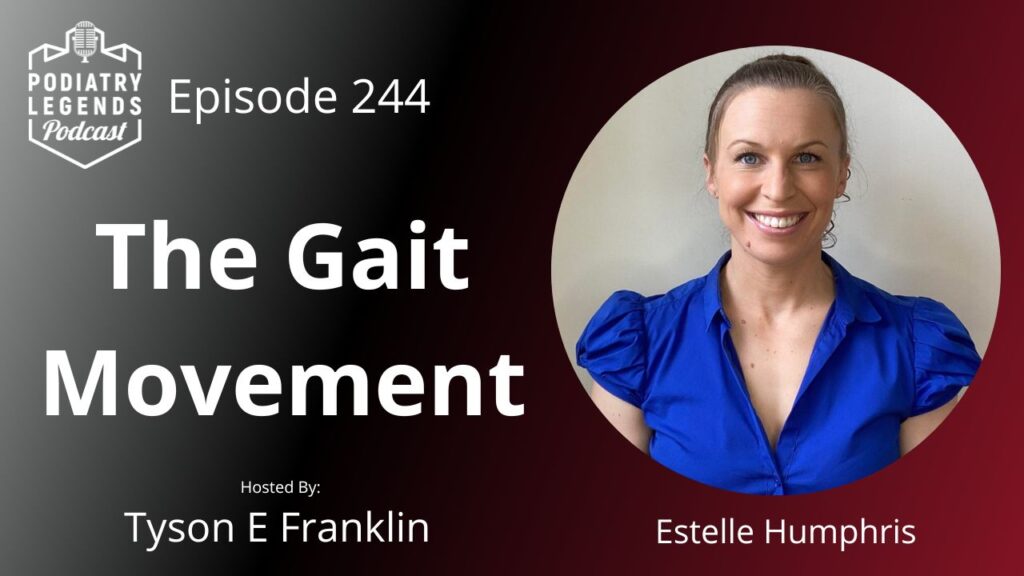In true Tyson Franklin fashion, he gets the conversation rolling with the question:
What got you into Podiatry in the first place?
Now, if you looked at my school subjects in year 12, you would think “this girl doesn’t know what on earth she wants to do!”.
I did Art, German, Biology, Maths and English – quite a mix!
When trying to decide what to do after I left school, my mum’s advice was simply “Don’t do nursing!”. She’d had a long career of being under appreciated and under paid for the ‘hard-yakka’, physically demanding work with terrible shift work hours.
So instead I considered what other areas of health I might like, as I was interested in the fascinating human body and helping people.
I thought about physio – but this might be quite harsh on my own body, delivering physical therapy.
I thought about radiography – but this would mean I’m in dark rooms all day long with no natural light!
Then, I went to a Podiatrist – Pod2 in Adelaide – when I was in year 10 for an ingrown toe nail. I looked around at the lovely building and clinic room, with windows and natural light and thought “hmm nice rooms, nice hours, no shift work, probably only have to learn about half the body right?!”
Well, I was wrong on that last point! Sadly the “foot bone’s connected to the….” And so on – you have to learn it all!
Anywho – I applied for Podiatry and to be honest I didn’t think I would get in, but that was okay, my back-up plan was either Graphic Design or Event Management! (So similar right?!).
To my surprise and excitement, I got into UniSA Bachelor of Podiatry and that was that!
What did you think about the Podiatry Course once you started at uni?
Once getting into Podiatry I found the course was a lot less practical and hand-on than expected – the more practical component with real clients didn’t really happen until third year for us.
But what was the biggest struggle for me was coming back to study after a year off travelling overseas. I took a gap year between my 2nd and 3rd year and this really “broke my stride” if you like in being in practice with studying and focussing.
Eventually, the Head of Podiatry called me to her office and asked what’s going on with me? She was surprised that I had always been at the higher end of the class with good grades and now I was scraping through and only just passing things.
I confessed that I was really struggling to focus, I was putting hours into study but just not taking anything in.
She recommended that I get tested for dyslexia, so I did. Low-and-behold I am dyslexic, with audio-processing delay and the “reading capacity of a 16 year and 8 month year old” according to my diagnosis report.
It was never picked up at school, because despite reaching out to teachers on multiple occasions throughout my schooling that I am really slow at reading (taking 12 minutes to read one novel page!), they just thought that because I had good grades, I must just be a bit slow at reading and they would just give me some extra time in exams. No one realised how much harder I was working to get those good grades, I just have the personality of being a hard worker and don’t like failure.
Once diagnosed, the uni offered services from the Learning and Teaching Unit with lots of resources to help me learn study techniques to help me with my condition. But with my final written exams looming in just a few weeks, I didn’t have time to spend on learning how to learn. So I took this diagnosis onboard which helped with some peace of mind that there is a reason I find this so hard and just buckled down and did the best I could for the final written exams.
The thing about being a student, you feel alone with many emotions throughout your studies and those insecure thoughts such as, “Am I behind my peers?”, “Am I okay at this? Do I know enough for when I get out of uni?”.
At the end of the day, this is all normal! And this is what my diagnosis taught me, and I hope this helps some readers/listeners who relate to my learning struggles.
You will still go through phases of “OMG why did I get myself into this course?!”. And there are definitely topics or subjects throughout your degree that you will be sitting there thinking “This is such a waste of time, this is not going to help me for when I get into the real world” and frustratingly, you’ve just got to do it! Perhaps they open our minds or at least build our resilience! But you are not the only one having these thoughts and feelings.
Things did get better in my final year with more placements and practical learning, but it was definitely still tough getting through.
I’ve learnt strategies or identified what kind of learning mediums are better for me to learn from over the years. For example, online videos where I can pause, write notes, and continue.
An important lesson has been to ask questions. Learning from my senior mentors and their experiences I find are interesting and engaging conversations and I learn lots from this. So I learnt to swallow my pride whenever I thought I had a “dumb question” and just ask it anyway.
What did you do when you graduated from uni?
When I left uni, I started working in country public health, which was mainly wound care. This is what I thought I wanted to do. I had a great mentor and fellow podiatrist on my team and really enjoyed it initially. But sadly, when I was 3 months in, my Senior Mentor and the other podiatrist moved interstate and I was left as the only Podiatrist at that site as a new grad!
I was allocated another Senior Mentor who was offsite, but its just not the same as being able to have clinical discussions in person in the clinic room. I began to lose a lot of confidence and was not in a happy place, feeling very alone and isolated. I was also losing my skills in other areas such as biomechanics and paediatrics because there was such a high volume of wound clients and these were the “Priority 1s”. I stuck it out till the end of the year, and then found my way back to Adelaide.
My next job turned out to be purely nursing homes and home visits, with not much on site clinic time as promised. I recognised that I was further losing my skills in biomechanics and paediatrics and starting seeking work elsewhere.
I was actually almost ready to “throw the towel in”, but I thought I would give Podiatry one last crack. If I found a private clinic with a good mentor and a good team, no nursing homes or home visits and if I still didn’t enjoy things then I will know its Podiatry itself and not the environment that’s wearing me down.
But my next job was thankfully all the things I needed – a great senior mentor who was accessible and open to helping me and answering all my clinical questions. I told this mentor, Andrea Castello, owner of AC Podiatry, that I had lost touch with biomechanics and will need a fair bit of help in this area and his attitude was so easygoing and reassuring as he said “skills can be taught” – as simple as that and from then on I felt very comfortable to ask any and all of my questions. With his support and a great team, I rebuilt my confidence and learnt to enjoy Podiatry again.
What important lessons have you learnt?
Something that would always give me anxiety was new clients, because you never know what issues are walking through the door and how complex they would be.
So I would repeat a mantra in my head before each new client, which was:
“I know enough to get through the first initial consult.”
Recognising that you have enough “tools in your tool-kit” to get you through at least one appointment is a really important lesson as a young clinician that can really help settle you and get you through. Once you get through that one consult, you know what the clients problems are and you can research, speak to your mentors and come back prepared for the next appointment and it’s guaranteed you’ve learnt something that will help you for other clients down the track.
It’s taken me 3-4 years to work through that feeling of “Imposter Syndrome”, to a point where I finally started reflecting on my day and thinking “I actually did some really good podiatry today, I’m actually alright at this”. It’s really nice to reflect back that hard work has paid off and be able to appreciate myself and what I’ve achieved.
How did you come up with the idea to create The Gait Movement?
The other thing that I was not confident in was gait analysis.
Throughout my early career I did ask a few senior mentors for help with this, but I think it was a bit of an overwhelming task for them – where do you even start to teach a topic so broad especially in such short time frames for face-to-face meetings in a standard clinic week?
So the advice that was given to me on multiple occasions was: “just go watch people walk in your local shopping mall, watch every client you have walking down the hallway in clinic. You’ll get better over time with experience.”
This frustrated me, because I was ALREADY DOING THIS! And not making any progress, because I could identify certain gait patterns but could break-down the WHY and the HOW they were happening.
So I started filming every client walking down the clinic hallway and reviewing these videos, slowing them down and identifying what I could and then bringing these videos to mentoring sessions to chat through why certain gait patterns happen and what structures could be overloaded etc. I pooled all this information together in my head and YES, I got better over time and with experience. But I thought: “If I had thought this way around gait analysis, surely there must be others who feel the same” and “Surely there’s a way to pass on this knowledge more efficiently to fast-track the process for future young clinicians learning gait analysis”.
So this is how I came up with The Gait Movement.
I wanted to create an organised resource for young clinicians, that they could work through and refer back to as many times as they like and easily apply the principles in the clinic and help clinicians in the same position as I was, and build their confidence and reduce their anxiety in gait analysis.
I’ve been thrilled to hear feedback from some of our customers that I have achieved exactly this for some people and you can read their testimonials here.
I would love it if people reading this or listening to the Podcast could help spread the word about The Gait Movement because I honestly believe our courses could help so many clinicians out there and help better our MSK Allied Health professions.
And of course, if you feel you want to improve your confidence and skills in gait analysis, check out out our courses here.
Link to the full Podcast here: Podiatry Legends Podcast – Episode 244 – The Gait Movement

